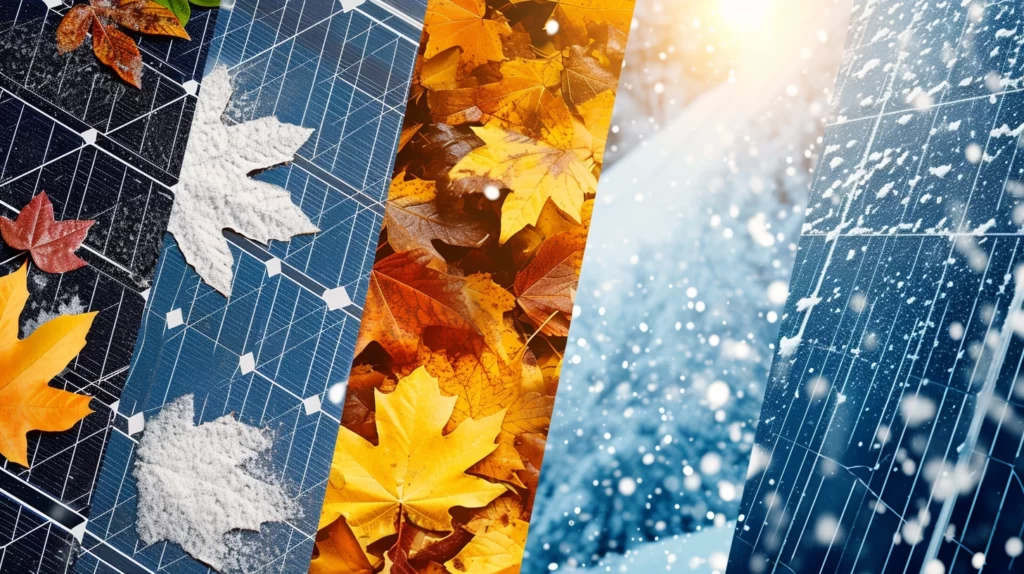Solar Panel Lifespan: How Long Do Solar Panels Last?
Some might argue that the finite lifespan of solar panels undermines their environmental benefits, but I’ve found that the reality is far more nuanced.
As a writer with a focus on sustainability, I’ve spent considerable time examining how the longevity of solar panels plays a critical role in the calculus of renewable energy investments.
It’s not just about how many years they’ll harness the sun’s energy, but also how their performance changes over time and what that means for the energy landscape.
I’ll be unpacking the layers of this complex issue, from the rate of solar panel degradation to the surprising ways the industry is working to extend their life and manage their retirement.
Join me as we illuminate the intricacies of solar panel lifespan and consider what it signals for the future of clean energy.
Continue Reading to Understand These Key Points:
- Solar panel degradation is a gradual decline in energy output over time, with an average annual degradation rate of about 0.5%.
- Factors such as climate conditions, installation quality, and panel type can influence the rate of degradation.
- Proper maintenance and high-quality equipment are essential for maximizing the longevity of solar panels.
- Effective end-of-life practices, including recycling and disposal, are crucial to managing the environmental impact of decommissioned panels.
Understanding Solar Panel Degradation
To fully grasp the longevity and efficiency of solar panels, it’s essential to understand solar panel degradation, which manifests as a gradual decline in energy output over time.
This phenomenon is quantified by the solar panel degradation rate, an indicator of how much the panels lose efficiency over time. On average, solar panels have an annual degradation rate of about 0.5%.
This means after five years, you might expect a 2.5% decrease in energy production, and after 20 years, a more significant 10% drop could be observed.
These figures are just averages, though, and the actual lower degradation rate for some panels suggests that they may outlast this estimate, contributing to a longer life span of solar installations. Various factors such as local climate conditions, the quality of the installation, and the type and quality of the panel itself can influence how quickly solar panels degrade.
Manufacturers are aware of this issue and often offer power output guarantees to ensure that panels perform at a certain level despite the inherent degradation.
There’s a concerted effort within the industry to push for advancements that will result in longer-lasting and less energy-intensive PV products, ultimately aiming to mitigate degradation and extend the life span of solar energy systems.
Maximizing Solar Panel Longevity
Ensuring the longevity of solar panels hinges on proper maintenance and the selection of high-quality equipment designed to withstand environmental stressors. To make solar panels last beyond their average life span, I’m diligent about implementing several key practices:
- Regular Maintenance Checks: I schedule routine inspections to ensure panels are free of debris and damage. This not only sustains their efficiency but also prevents minor issues from escalating.
- Quality Selection: I invest in high-quality panels and components from reputable manufacturers. They’re more resilient against environmental challenges, which means they’re less likely to suffer from severe degradation.
- End-of-Life Management: I’m proactive about the end-of-life management of photovoltaic systems. Proper recycling and disposal of panels are essential to my sustainable energy approach.
I recognize that solar panels lose efficiency over time, but with attentive care, the decline can be minimal. By performing maintenance checks, I catch and rectify problems early on, preserving the panels’ functional capacity.
By understanding and preparing for the photovoltaic end-of-life process, I contribute to a more sustainable lifecycle for solar technology, ensuring that even as panels reach their twilight years, they do so with minimal environmental impact.
Factors Influencing Panel Durability
The durability of solar panels is often directly influenced by the quality of materials and manufacturing processes used in their creation. It’s these factors that determine how long solar panels are expected to maintain optimal energy production.
While most panels are designed to last for several decades, they do tend to lose efficiency over time, typically around 0.5% to 1% per year. This gradual decline is an important consideration for predicting long-term clean energy yield.

Environmental conditions are also critical in influencing solar panel durability. Extreme weather conditions, such as hail, heavy snow, and strong winds, can physically damage panels and shorten their lifespan.
Even less dramatic conditions, like high humidity or temperature fluctuations, can affect the panels’ performance and structural integrity.
A panel’s lifespan isn’t just about how long it can produce electricity; it’s also about ensuring that it can be recycled at the end of its life. With the growth of clean energy technology, the availability of recycling infrastructure and regulations is becoming increasingly important.
As technology advances and industry standards evolve, we’re seeing a push for more durable and sustainable solar panel options that can further bolster the role of solar energy in our global energy system.
Solar Panel End-of-Life Practices
As solar panels approach the end of their productive life, effective end-of-life practices become essential to manage the environmental impact of decommissioned units.
Understanding how to navigate these practices isn’t only environmentally responsible but also critical for the industry’s sustainability.

When solar panels degrade beyond effective use, we’re faced with a decision on how to handle them. Here are some current practices:
- Recycling: Extracting valuable materials for reuse, though challenging due to the panel’s complex composition.
- Landfill Disposal: A less desirable option, as it can lead to hazardous waste issues.
- Repurposing: Finding alternative uses for aged panels that still function at reduced capacity.
As I look into when to replace my panels, I’m also considering the broader picture of photovoltaic panels management. Environmental implications weigh heavily on these decisions.
Proper end-of-life practices for solar panels can mitigate negative impacts, yet the infrastructure for recycling needs substantial improvement. It’s a technical challenge, calling for innovative solutions to handle the increasing volume of panels due for retirement.
The industry must prioritize these end-of-life practices to ensure a sustainable transition to renewable energy.
Innovations in Panel Lifespan
Innovative advancements in solar technology are extending the operational lifespans of photovoltaic panels beyond their traditional 30-35 year expectancy.
As solar panel technology improves, manufacturers are increasingly confident in their products, leading to extended manufacturers’ warranties and power production guarantees.
These assurances are critical indicators of the panels’ performance and the potential for energy savings over time.
To illustrate, here’s a snapshot of the recent innovations:
| Innovation | Benefit | Impact on Lifespan |
|---|---|---|
| New Materials | Enhanced durability | Reduces degradation |
| Design Improvements | Optimized energy capture | Extends effective use |
| Better Manufacturing | Quality control | Increases reliability |
| End-of-Life Planning | Recycling programs | Promotes sustainability |
These developments show a clear trend: solar panels are becoming more robust, efficient, and sustainable. With rigorous testing and quality assurance, the industry is pushing the boundaries of how long solar panels can effectively operate while maintaining their energy output.
This not only benefits consumers through long-term energy savings but also contributes to a more sustainable energy ecosystem.
As research continues and practices evolve, we can expect the lifespan of solar panels to increase even further, making solar energy an even more attractive option for those looking to invest in renewable energy.
Final Thoughts
While the lifespan of solar panels may vary depending on a variety of factors, proper maintenance, and high-quality equipment are key to maximizing their longevity.
It is also important to consider end-of-life practices, such as recycling and proper disposal, to minimize the environmental impact of decommissioned panels.
